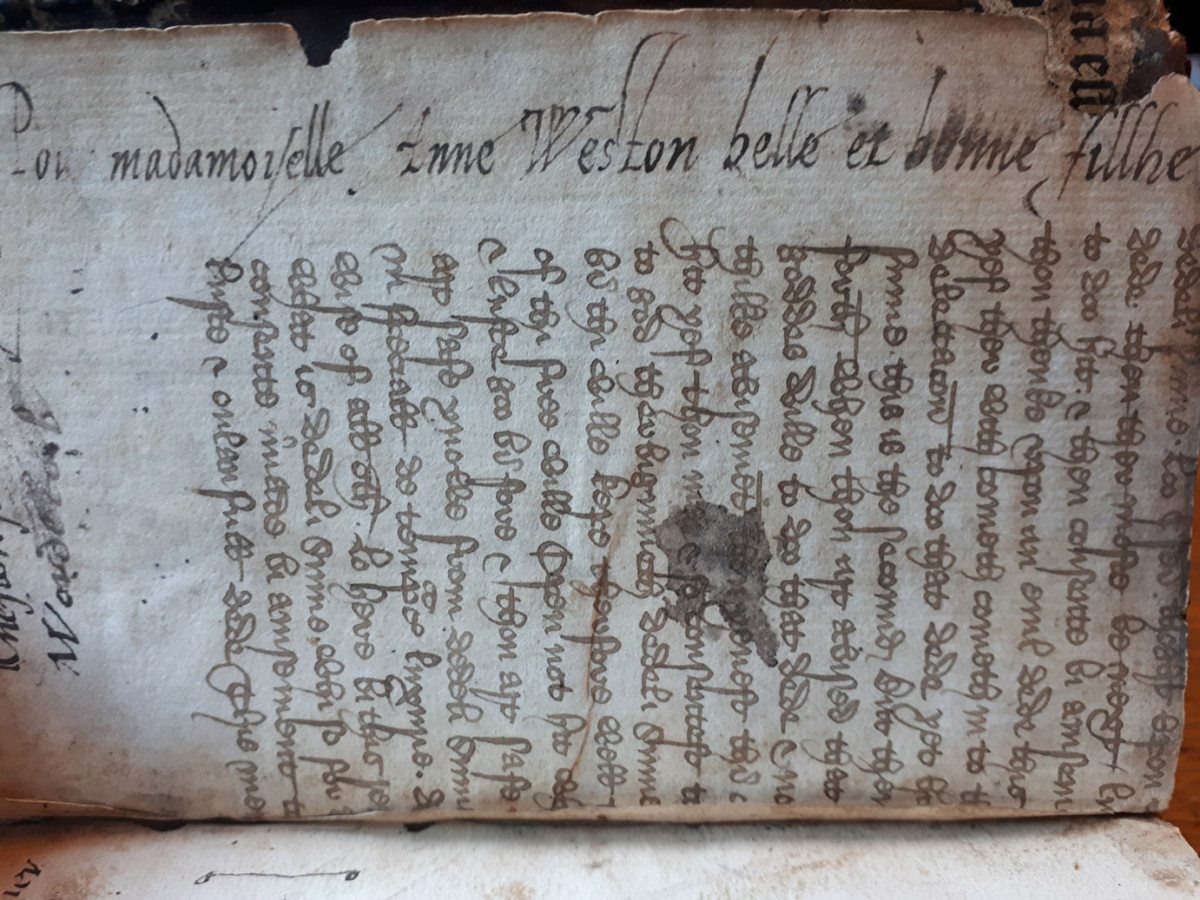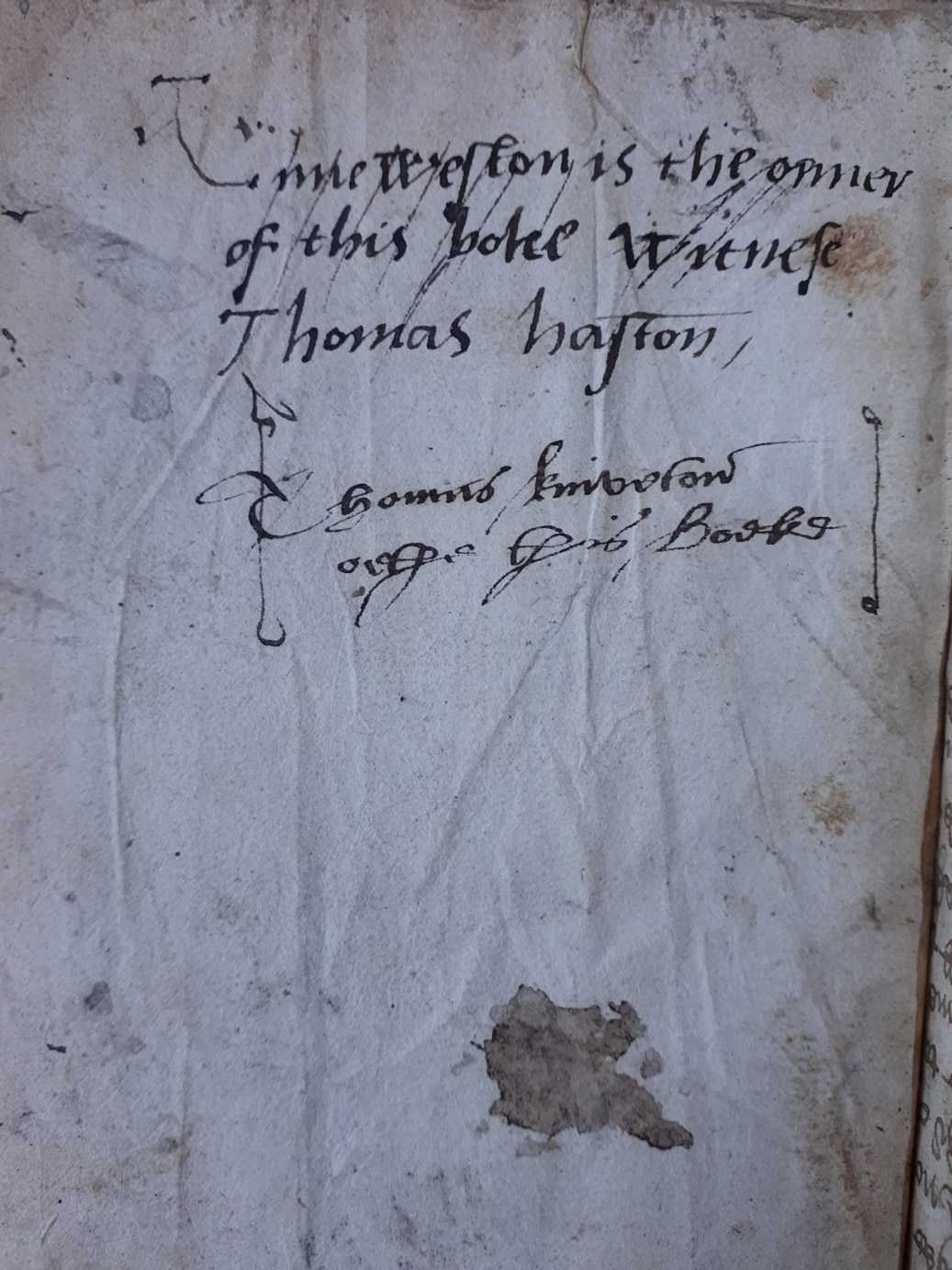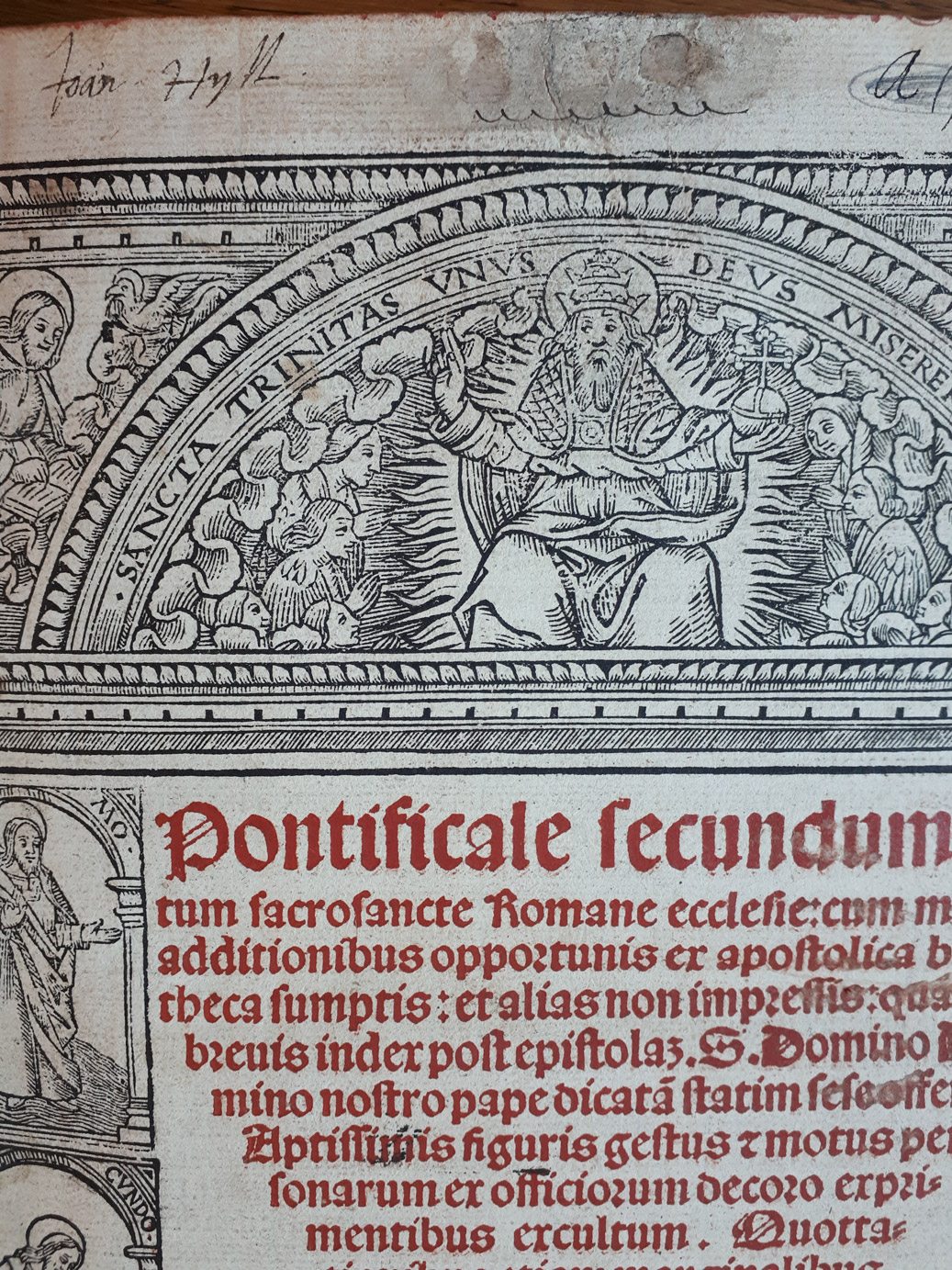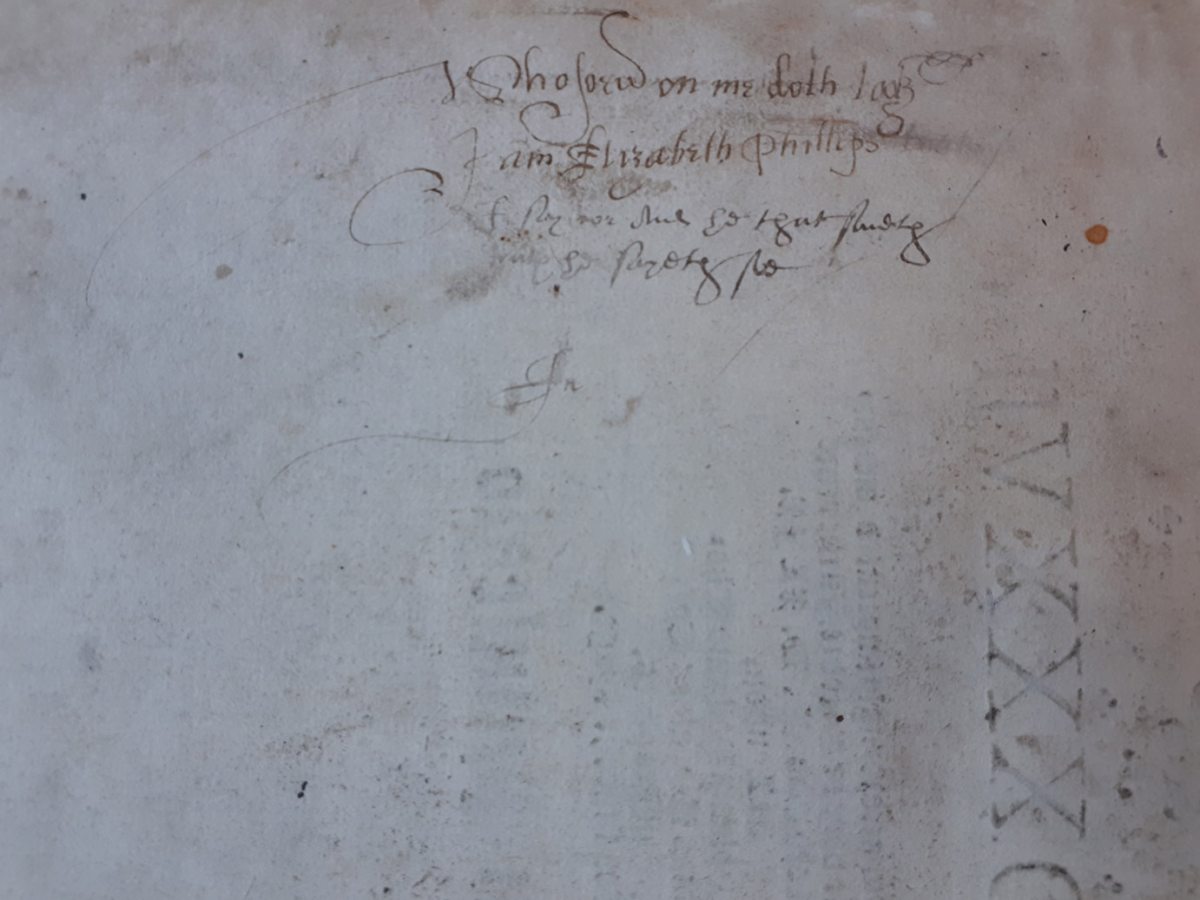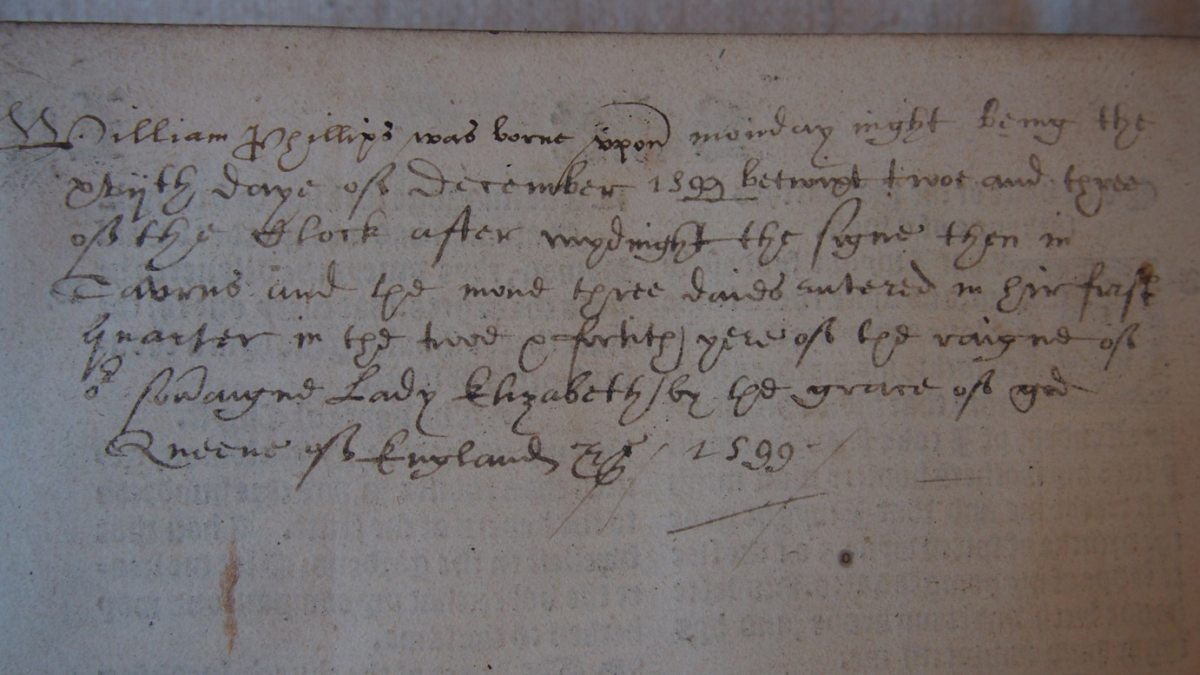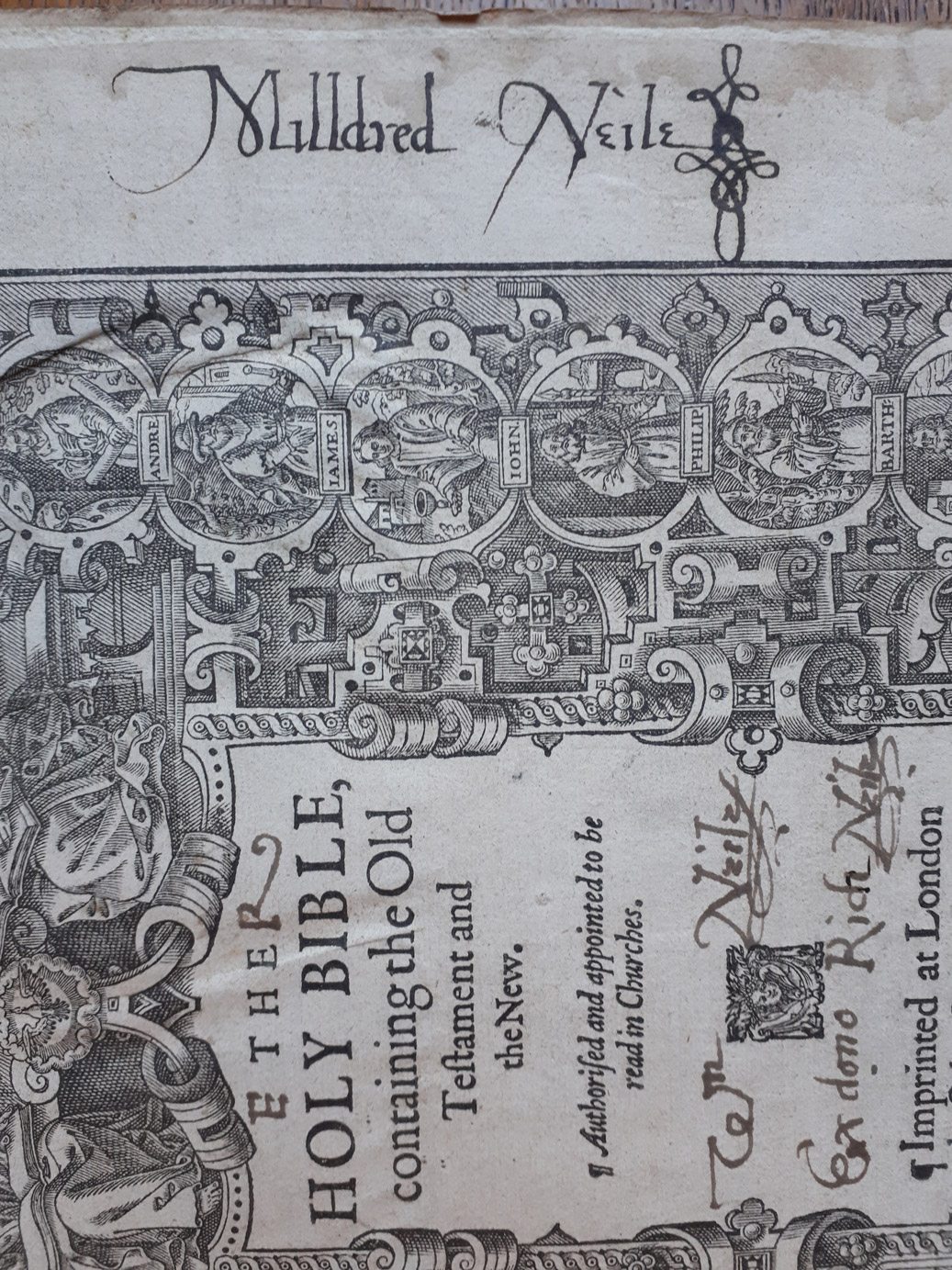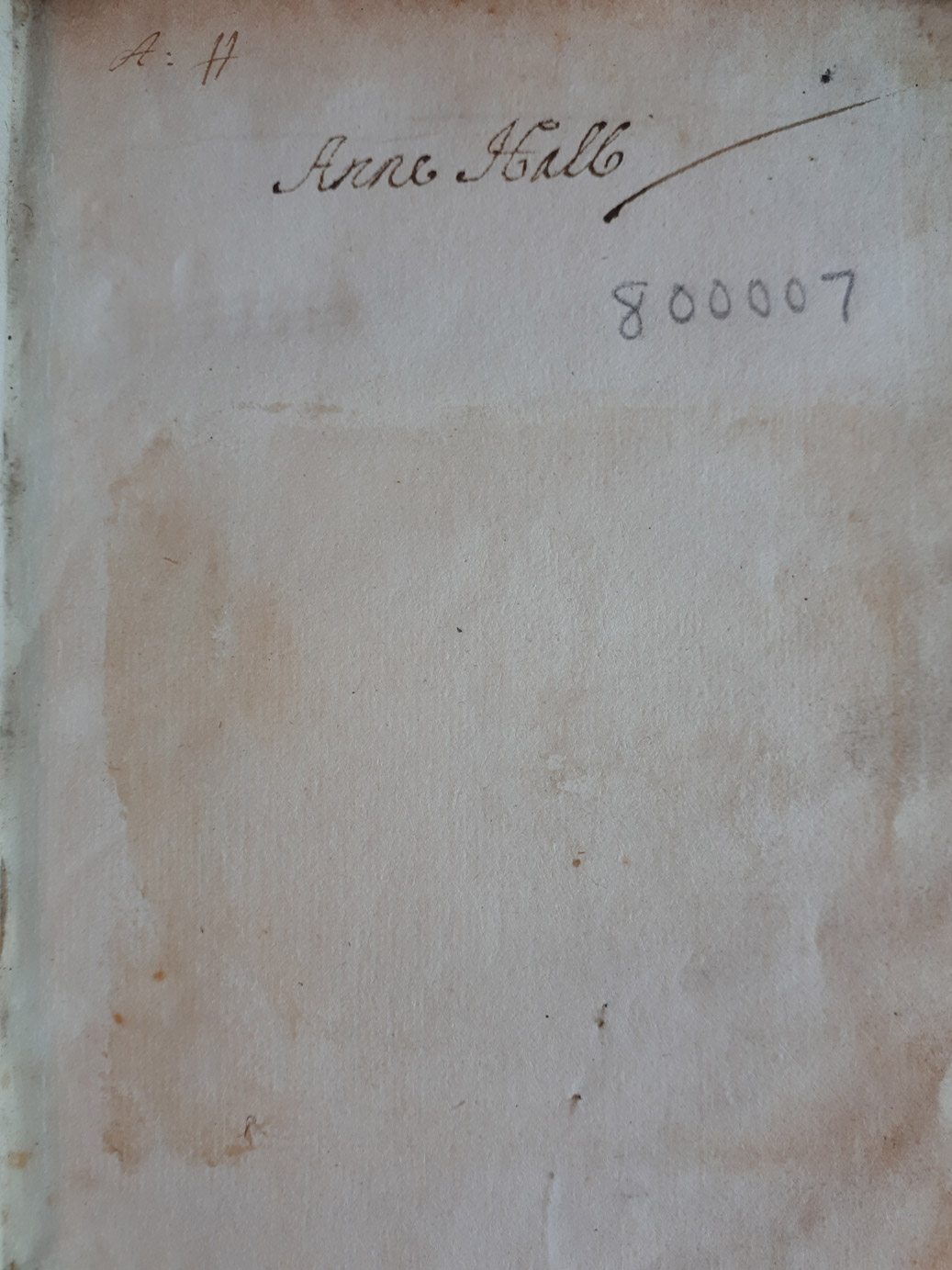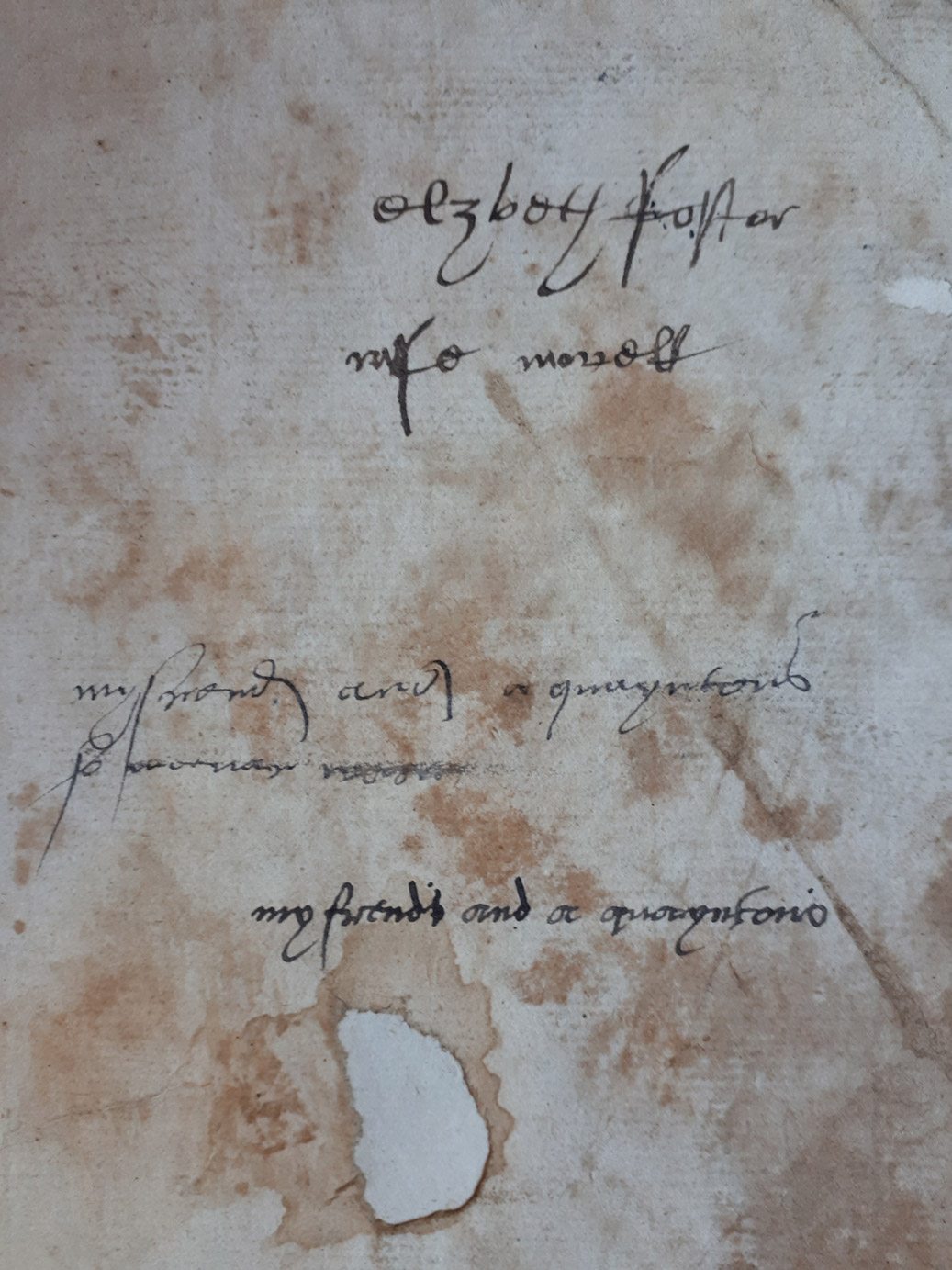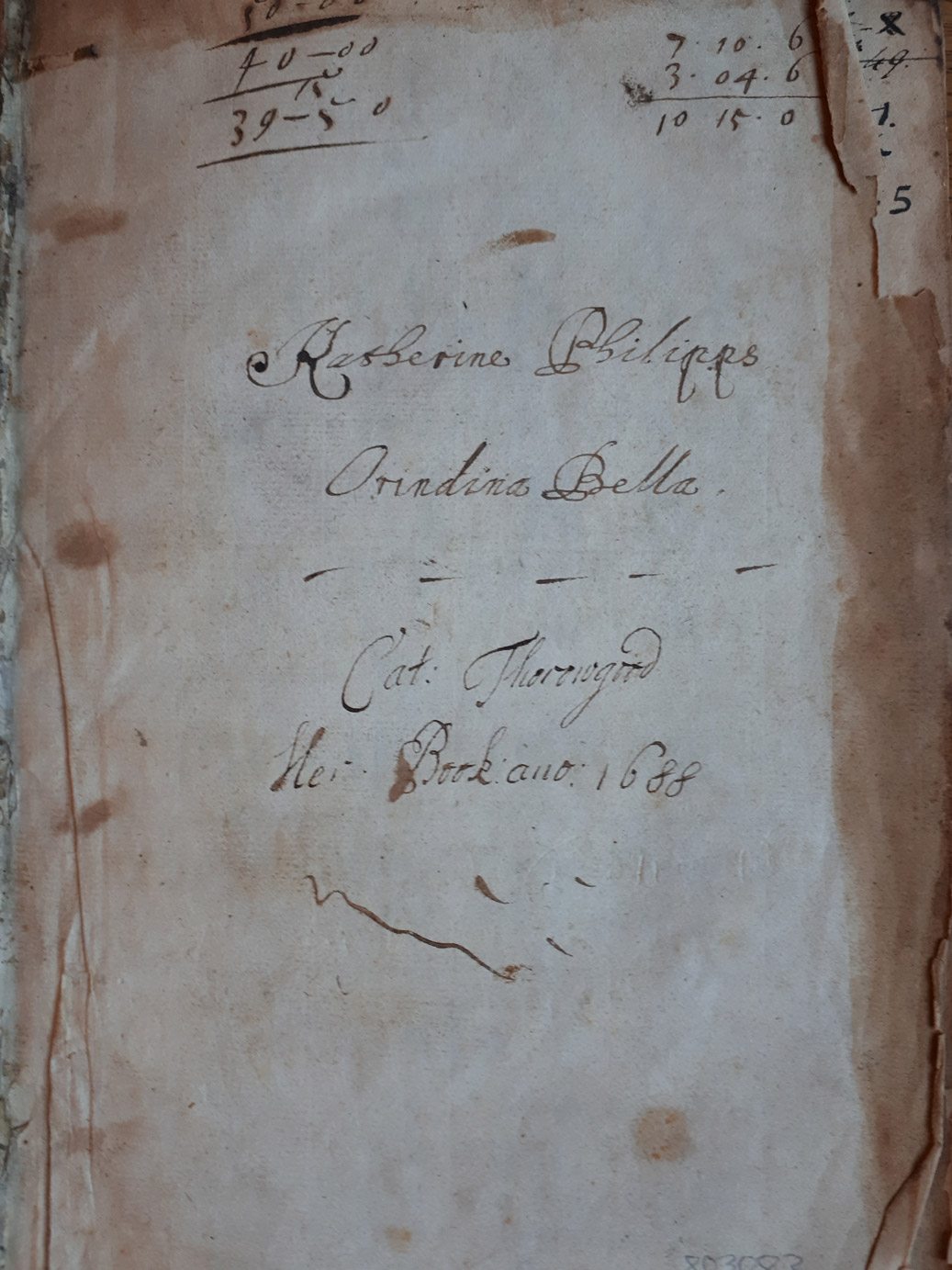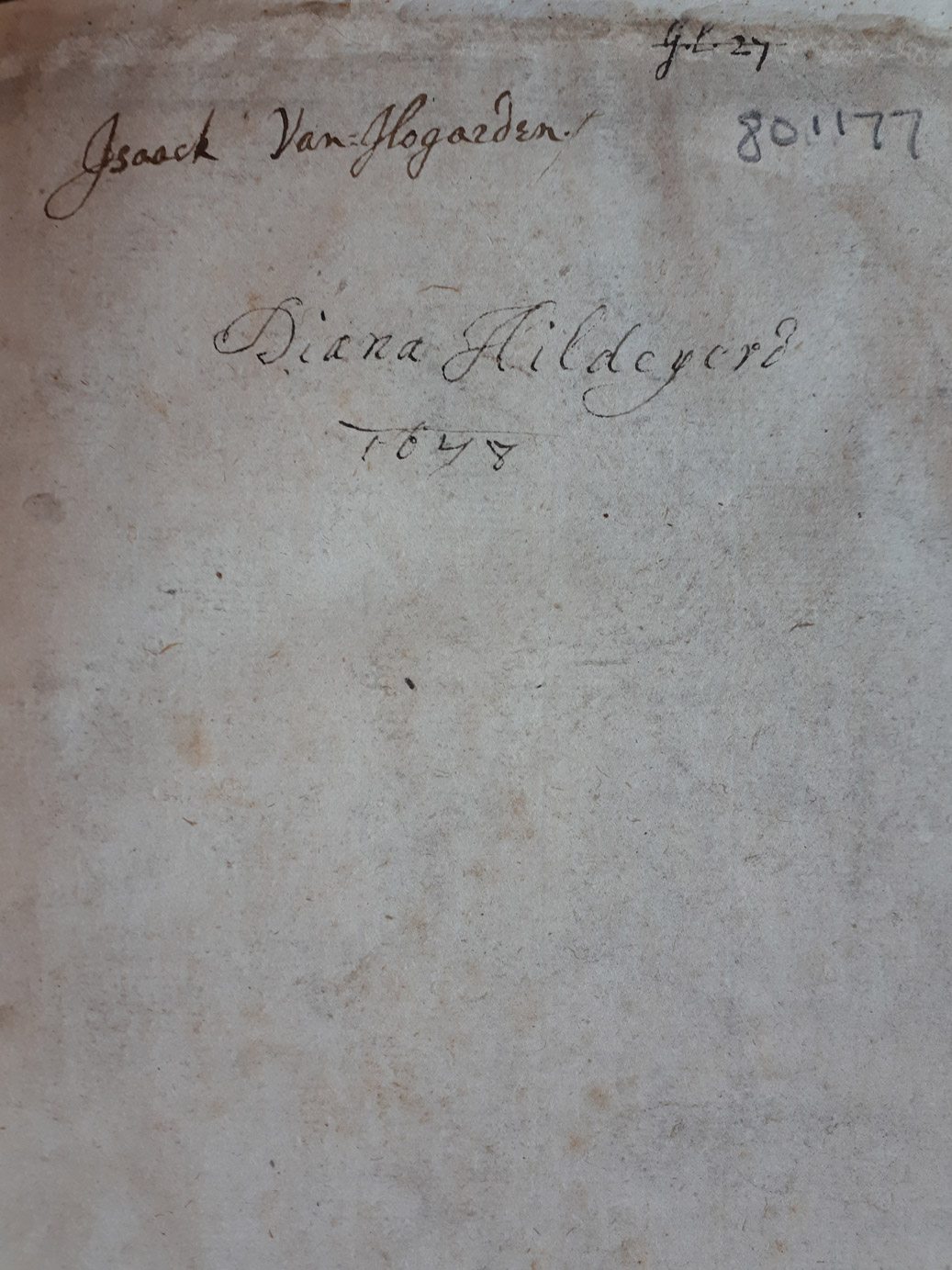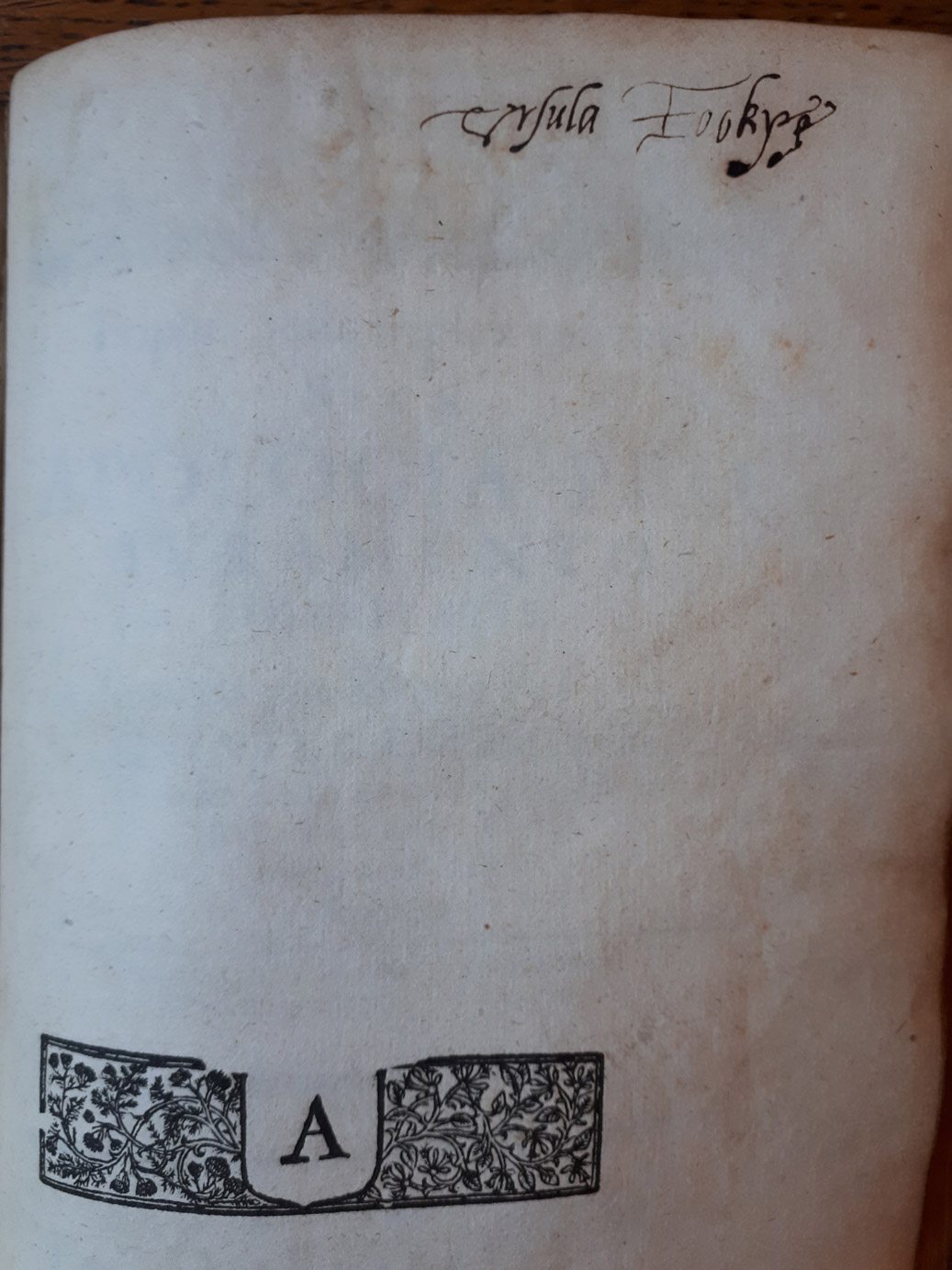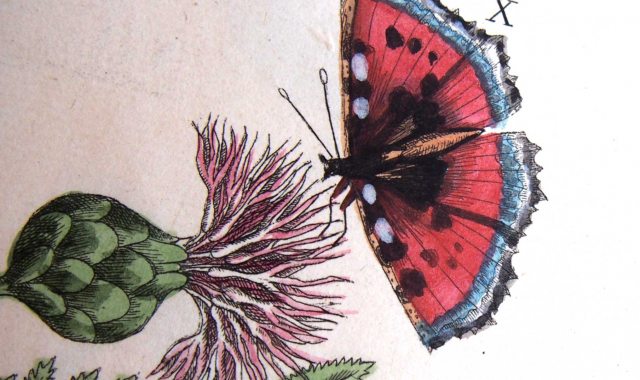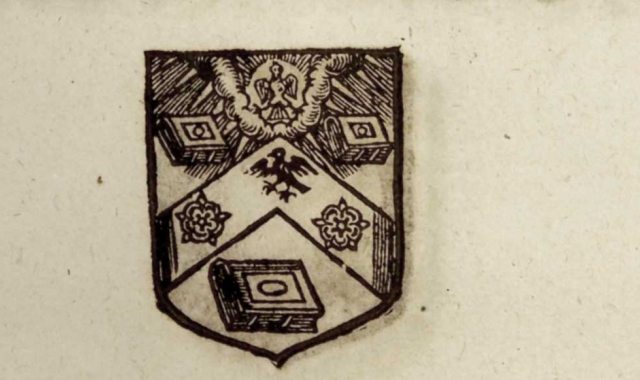Readers
Women's subordinate status in early modern England meant that those in any given social position were less likely to be as literate, had less access to the growing new body of printed texts, and had less freedom in their reading of those texts than men. Nevertheless they did own and read books, as witnessed by two dozen signatures so far identified in this library.
We can only expect women's signatures from this period to tell us about exceptional readers. Reading and writing were separate stages in children's education, 'the second of which never arrived for the majority of young learners'; [1] and even among the privileged minority of families who did not have to put girls, like boys, to work, many saw writing as 'altogether unnecessary for women' (as the tutor Martin Billingsley complained in 1618). [2]
Anne Bacon (c.1528–1610), mother to the philosopher Francis, was an exception among exceptions: her father taught his five daughters Latin, Greek, and the works of the church fathers in a household described by a contemporary as a 'small university'. [3] A volume now in this library, containing two of Erasmus's Latin paraphrases of the Gospels, carries Bacon's 1558 signature and monogram.
Devotional reading like this 'was everyone's reading', [4] and this library also holds a Roman Catholic liturgical book (1542), two early English Bibles (1549, 1602), and several copies of the Caian Jeremy Taylor's later devotional works with women's signatures. The household manuals that were also early established as acceptable reading for women are scarce in this academic library, but a copy of the Homish Apothecarye (1561) carries the name of one Elzbett Foster.
There is later evidence here of women reading poetry, plays, and criticism, including the poet Katherine Philips's (1632–1664) copy of the works of Fulke Brooke, and of their interests in contemporary and historic politics. It is cruel that as women's literary engagement and intellectual life continued to grow, political theory 'from the Civil War onwards' more explicitly excluded them from its new conception of the citizen. [5]
1. Eve Rachele Sanders and Margaret W. Ferguson, 'Literacies in Early Modern England', Critical Survey 14 (2002): 2. 2. Cited in Keith Thomas, 'Literacy in Early Modern England', in The Written Word, ed. Gerd Baumann (Oxford: Clarendon, 1986), 117. 3. Lynne Magnusson, 'Bacon (née Cooke), Anne, Lady Bacon', in Oxford Dictionary of National Biography (Oxford: Oxford University Press, 2004–2019), online. 4. Mary C. Erler, 'Devotional Literature', in The Cambridge History of the Book in Britain, v. 3, 1400–1557, ed. Lotte Hellinga and J.B. Trapp (Cambridge: Cambridge University Press, 1999), 495. 5. Sarah Mendelson and Patricia Crawford, Women in Early Modern England (Oxford: Clarendon, 1998), 430.

